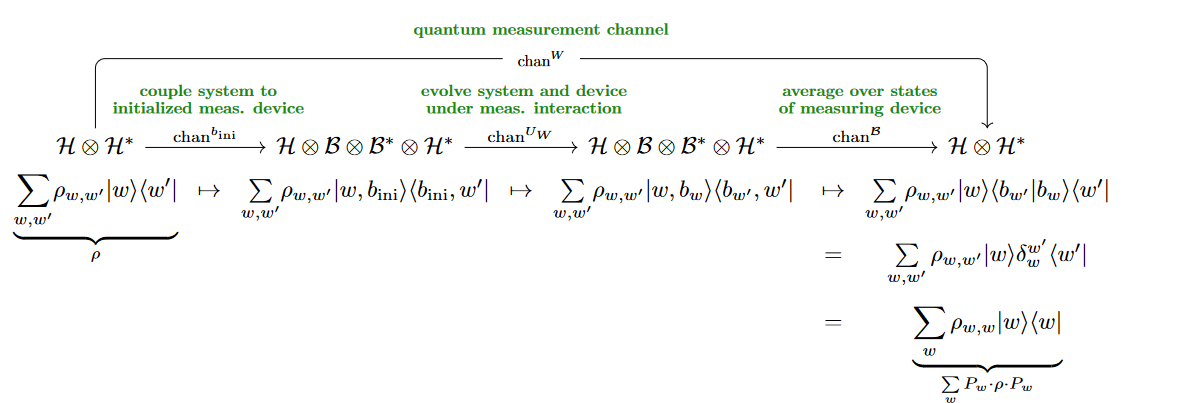nLab environment rep of quantum measurement channel - section
Environmental representation of measurement channels
By the general theorem about environmental representations of quantum channels, every quantum channel on a quantum system may be decomposed as
-
coupling of to an environment/bath system ,
-
unitary evolution of the composite system ,
-
averaging the result over the environment states.
The way this works specifically for quantum measurement channels has precursor discussion von Neumann 1932 §VI.3 and received much attention in discussion of quantum decoherence following Zurek 1981 and Joos & Zeh 1985 (independently and apparently unkowingly of the general discussion of environmental representations in Lindblad 1975).
Concretely,
(we shall restrict attention to finite-dimensional Hilbert spaces not to get distracted by technicalities that are irrelevant to the point we are after)
if (we use bra-ket notation) denotes the initial state of a “device” quantum system then any notion of this device measuring the given quantum system (in its measurement basis , ) under their joint unitary quantum evolution should be reflected in a unitary operator under Zurek 1981 (1.1), Joos & Zeh 1985 (1.1.), following von Neumann 1932 §VI.3, review includes Schlosshauer 2007 (2.51):
-
the system remains invariant if it is purely in any eigenstate of the measurement basis,
-
while in this case the measuring system evolves to a corresponding “pointer state” :
for and distinct elements of an (in practice: approximately-)orthonormal basis for . (There is always a unitary operator with this mapping property (1), for instance the one which moreover maps and is the identity on all remaining basis elements.)
But then the composition of the corresponding unitary quantum channel with the averaging channel over is indeed equal to the -measurement quantum channel on (cf. eg. Schlosshauer 2007 (2.117), going back to Zeh 1970 (7)), as follows:

Created on September 24, 2023 at 15:36:19. See the history of this page for a list of all contributions to it.